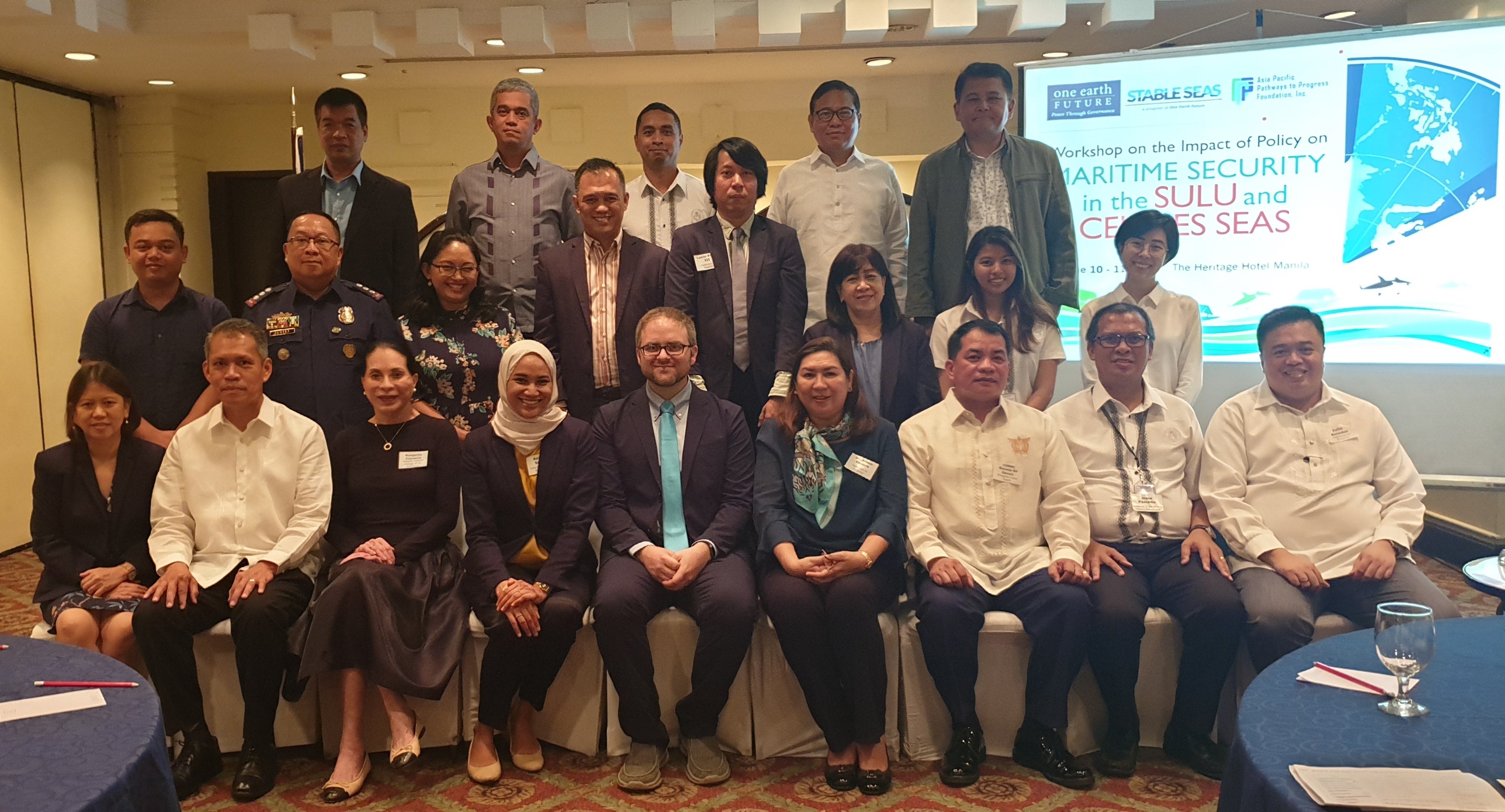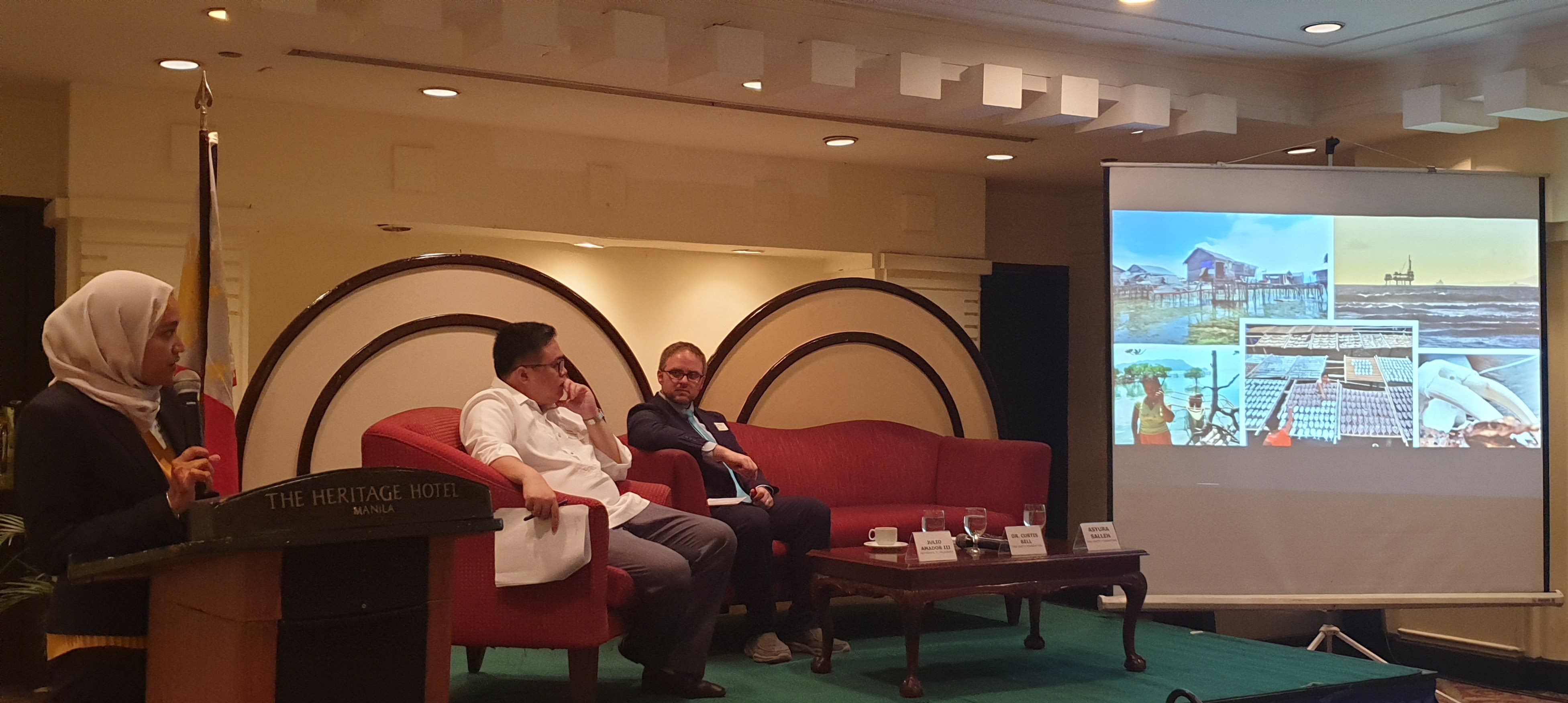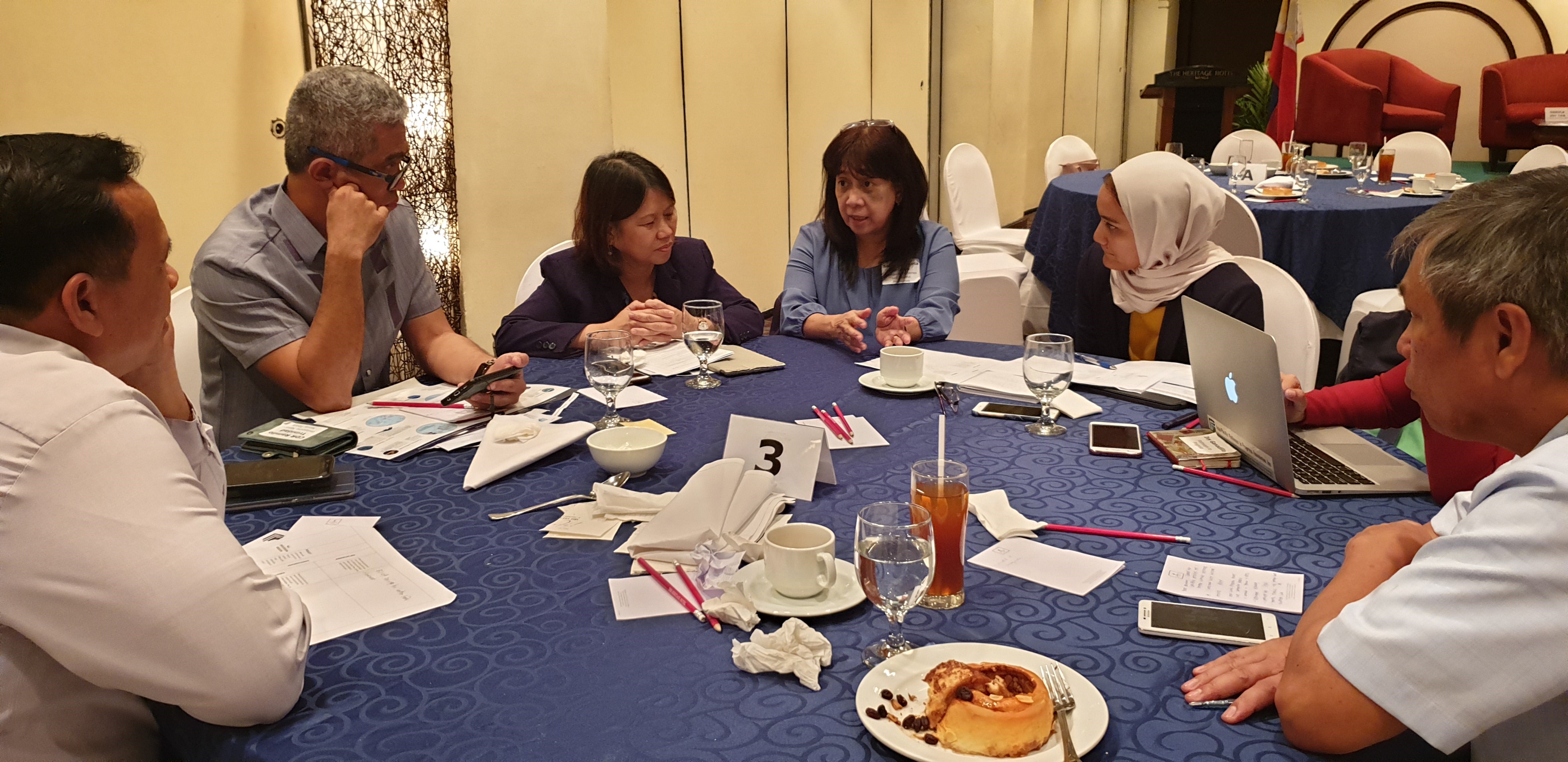
At center are Stable Seas Director Curtis Bell and project manager Asyura Salleh with Dr. Baviera.
Maritime security and law enforcement, fisheries management, promotion of coastal welfare, and illicit trade are among the problem areas the Philippines and neighboring countries face in the Sulu and Celebes Seas. Two non-profit organizations jointly organized a workshop to explore solutions to these various challenges and opportunities. Stakeholders from the government, private sector, academe, and non-governmental organizations participated in the workshop held on June 10 and 11 at the Heritage Hotel Manila.
Manila-based Asia Pacific Pathways to Progress teamed up with Colorado-based One Earth Future Foundation (OEF; through its Stables Seas program), for this event, which looked at a recently published report by OEF on Sulu-Celebes maritime concerns. The report identified poor coastal welfare and weak rule of law as mutually reinforcing factors contributing to the proliferation of crimes such piracy, illegal, unreported and unregulated fishing, and kidnap-for-ransom among others.

Pathways Research Fellow Julio Amador III chairs the opening session.
Efforts to improve maritime security must also be attentive to socio-economic development in the poor coastal areas of the Philippines along the Sulu and Celebes seas, according to participants of the workshop. In particular, government must be prepared to tailor-fit maritime regulatory policies to different conditions in the coastal areas of Southern Mindanao. The concerns and capacity of local government units need to be taken into account in the crafting of maritime policies and they must be better integrated in the planning process. There is also a need to have a whole-of-government approach in addressing the overlapping concerns over maritime security, marine environment, and fisheries, considering the difficulty of dispersed mandates across many government agencies.

Law enforcement in maritime zones discussed by Undersecretary Cesar Yano of the Department of National Defense, Comm. Ronnie Gil Gavan of the Philippine Coast Guard and Atty. Azela Arumpac-Marte of the Department of Foreign Affairs.
The workshop participants further found that regional economic cooperation through the Brunei-Indonesia-Malaysia-Philippines - East Asian Growth Area did not produce the desired economic benefits in the past. According to private sector participants, there is over-regulation on the maritime industry sector that disincentivices investing in connectivity.
Among the recommendations of the workshop are to harmonize efforts of government agencies, identify the inland root causes of unsecure waterways, and increase the involvement of communities, businesses, NGOs and local government stakeholders in the Sulu and Celebes Seas.
Stable Seas is a program of One Earth Foundation that promotes collaborative maritime solutions to organized political violence that threaten the economic development and welfare of coastal communities though research on illicit maritime activities. The workshop was done with the cooperation of the National Coast Watch Council Secretariat, an inter-agency maritime surveillance and coordinated response facility mandated to implement the whole-of-government approach to address current and future maritime safety, security, and environmental challenges in the Philippines. .

This discussion group talked about the Sulu-Sulawesi-Sabah connections and coastal livelihoods. Two other groups looked at the Trilateral Cooperative Arrangement and on the blue economy opportunities and challenges.
